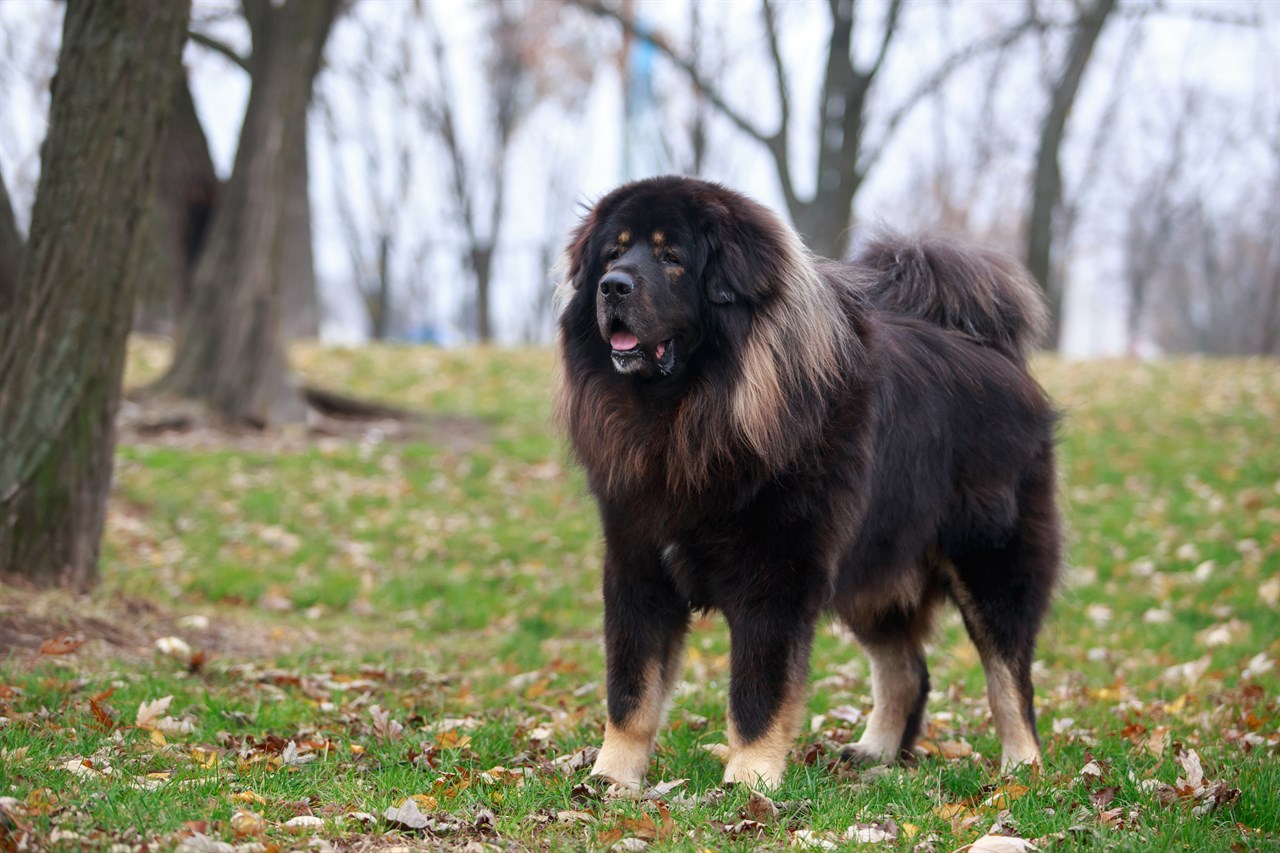Sleeping Requirements and Sleeping Habits of the Tibetan Mastiff

Tibetan Mastiffs, like all dogs, have specific sleeping requirements and habits that are influenced by their natural instincts and needs. Understanding these aspects of their behaviour is important for ensuring they get the rest they need to stay healthy and happy.
Daily Sleep Requirements
Tibetan Mastiffs, like most dogs, require a significant amount of sleep to maintain their physical and mental well-being. On average, they need between 12 to 14 hours of sleep per day, although individual variations exist. Puppies and older dogs may need even more sleep.
Napping Patterns
Tibetan Mastiffs tend to follow a pattern of intermittent napping throughout the day and night. They do not typically sleep for extended periods continuously, as their ancestors in the Himalayan region were bred to be alert and guard against potential threats.
Comfortable Sleeping Area
Provide your Tibetan Mastiff with a comfortable and quiet sleeping area where they can rest undisturbed. A cosy dog bed or mat in a quiet corner of your home can be an ideal spot for them to relax.
Sleep Environment
Ensure that their sleep environment is free from distractions and comfortable. Keep the temperature comfortable, provide soft bedding, and minimise noise and disturbances.
Adaptability
Tibetan Mastiffs are adaptable dogs and can adjust their sleep patterns to match their family's routine. They tend to be active during the day and may nap when their owners are not around.
Watchful Nature
Due to their protective instincts, Tibetan Mastiffs may exhibit a watchful and alert demeanour, even when resting. They may appear to be asleep but can quickly become attentive to any changes in their surroundings.
Bonding Time
Spending quality time with your Tibetan Mastiff during wakeful hours can strengthen your bond and provide mental stimulation. Regular exercise and playtime can help tired them out, making their sleep more restful.
Puppies and Seniors
Keep in mind that puppies and senior Tibetan Mastiffs may have different sleep requirements. Puppies often need more sleep to support their growth and development, while older dogs may require more rest due to age-related changes.
Sleep Changes with Age
As your Tibetan Mastiff ages, their sleep patterns may change. Older dogs may experience more frequent naps during the day and may have shorter periods of deep sleep at night.
Health Considerations
Pay attention to any changes in your dog's sleep patterns or behaviour. If you notice excessive sleepiness, restlessness, or difficulty sleeping, it could be a sign of an underlying health issue. Consult your veterinarian if you have concerns.
In conclusion, Tibetan Mastiffs have sleep requirements that are in line with those of most dogs. They need a comfortable and quiet sleeping area, and their sleep patterns are influenced by their protective instincts and adaptability. Providing a suitable sleep environment and maintaining a consistent daily routine will help ensure that your Tibetan Mastiff gets the rest they need to lead a healthy and content life.
Tibetan Mastiff puppies for sale
- Find Tibetan Mastiff puppies for sale in ACT
- Find Tibetan Mastiff puppies for sale in NSW
- Find Tibetan Mastiff puppies for sale in NT
- Find Tibetan Mastiff puppies for sale in QLD
- Find Tibetan Mastiff puppies for sale in SA
- Find Tibetan Mastiff puppies for sale in TAS
- Find Tibetan Mastiff puppies for sale in VIC
- Find Tibetan Mastiff puppies for sale in WA